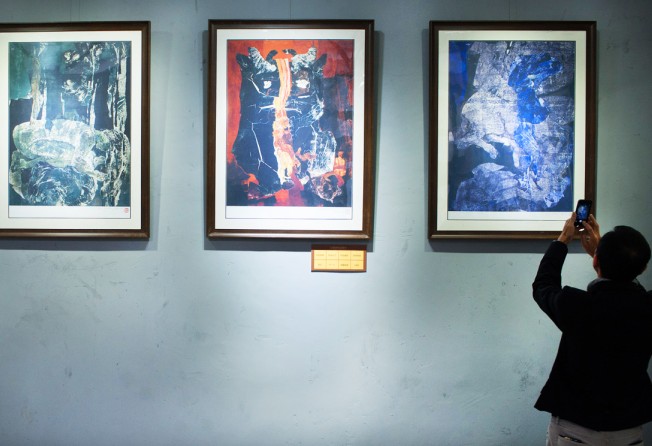Xi Jinping's call for political art evokes bad memories of Cultural Revolution
Some see president's speech to artists as echoing forebear's cultural edict that helped trigger excesses of Cultural Revolution

The role of arts and culture has again become a hot topic of debate on the mainland, after an unusual speech by President Xi Jinping. In remarks reminiscent of an imperial edict, Xi urged artists to create works that were not just artistically outstanding but also politically inspiring.
They should expand China's arts and culture industry abroad, on a level parallel to Hollywood, while promoting socialist core values at home to serve the Communist Party's agenda.
The meeting was attended by the upper echelon of military and government-owned cultural organisations, including the People's Liberation Army's art troupes, prominent movie actors and directors, authors and opera singers.
Traditional Chinese culture is the lifeblood of the nation and an important source of core socialist values, Xi said, as well as "a foundation for China to compete in the world".
China Daily hailed Xi's speech for "emphasising the integration of ideology and artistic values", while the Global Times, an affiliate of the party's flagship newspaper People's Daily, said it "answered the question of whom [the artists] serve".
State media drew comparisons to a speech delivered by Mao Zedong decades ago. In his famous Yanan talks on literature and art delivered in 1942, Mao declared creative ambitions must first serve the people and the party's revolutionary cause.
Under Mao's rule, artists, writers and cultural workers served as propagandists, promoting ideology, praising government policy and indoctrinating and brainwashing people.
Leaders have long viewed the arts as a powerful weapon in the party's ideological armoury and given direction on what paths creative works should follow.
But since market-oriented reforms began in the late 1970s, artists have been freer to choose what they want to say. However, they must still show their support for the party's agenda. More than 100 leading actors took part in two big films about the history of the party - The Founding of a Republic in 2009 and Beginning of the Great Revival two years later. Both were organised by the Central Committee's Publicity Department.
In 2012, 100 artists copied Mao's words by hand for a commemorative edition to mark the 70th anniversary of his Yanan talks. The contribution of several top writers, including Nobel laureate for literature Mo Yan, triggered widespread criticism that they had endorsed an assault on artistic freedom.
During the Yanan Rectification Movement (1942-44), propagandists used Mao's speech to rally cadres around Maoism as opposed to the Soviet-style Marxism-Leninism.
But Mao's emphasis on aligning imagination with the party's objectives contributed to the excesses of the Cultural Revolution, with his wife, Jiang Qing, using it to launch an attack on Chinese culture and her political enemies. Under the "Proletarian Cultural Revolution", traditional and foreign arts and culture were to be attacked.
The dramatic interpretation of the Yanan talks led to a new, party-sanctioned form of political art and the production of four revolutionary operas, and the purge and torture of many well-known artists and cultural figures for alleged wrongdoings.
Post-Mao, artists and writers have largely ignored the Great Helmsman's dictum, although it is enshrined in the party charter and state constitution.
Xi began his rule with an apparent return to Maoist-style dogma, launching ideological pushes such as the "mass line" campaign, "criticism and self-criticism" and a "rectification campaign". It remains to be seen whether his effort to dip back into the annals of party rhetoric by advocating Mao's ideas about art and literature will mark the retrogression of artistic freedom. But it should be noted that no great artworks in history are both artistically outstanding and politically inspiring.